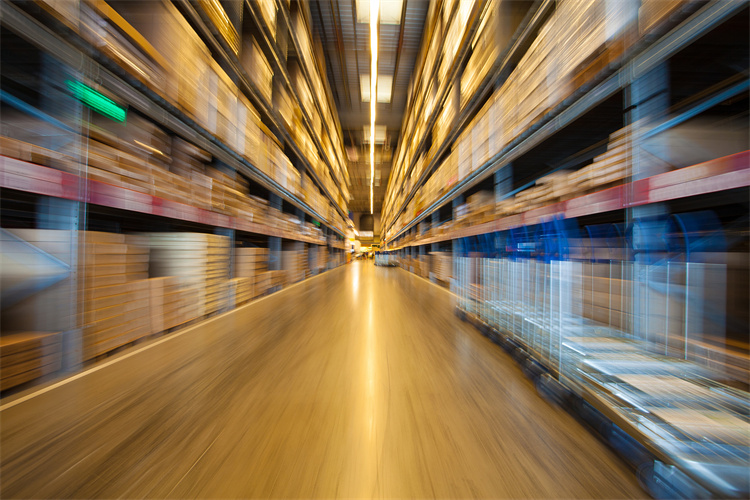The Evolving Role of Parcel Delivery Companies

Parcel delivery companies play a vital role in today's fast-paced world. These companies ensure that packages reach their destinations swiftly and reliably. The rise of e-commerce has fueled the growth of this industry. Consumers demand quick and efficient deliveries. Cross-border trade also contributes to the expansion of parcel services. Understanding the evolving role of these companies helps you appreciate their impact on global commerce. The industry continues to adapt to new technologies and consumer expectations.
Historical Context of Parcel Delivery
Origins and Early Developments
The history of parcel delivery companies traces back to the late 19th century. The introduction of Rural Free Delivery (RFD) marked a significant milestone. This service allowed people in rural areas to receive mail directly at their homes. The emergence of express delivery companies like UPS and FedEx further revolutionized the industry. These companies offered faster and more reliable services.
In the 19th century, industrialization and urbanization played crucial roles. Wells Fargo rose as a leader in secure transportation. The company provided essential services during this period. The United States introduced the parcel post system, making package delivery affordable. This system enabled businesses and individuals to send parcels efficiently.
Evolution Through the 20th Century
The 20th century witnessed remarkable advancements in parcel delivery companies. Technological innovations transformed the industry. The introduction of motor vehicles and airplanes enhanced delivery speed. Parcel delivery companies expanded their services and reach. This expansion allowed them to cater to a broader audience.
The exponential growth of eCommerce exerted pressure on courier services. Parcel delivery companies had to adapt and evolve rapidly. Investments in advanced logistics infrastructure became necessary. The digital age reshaped logistics and courier services. Companies adopted advanced technologies to improve operational efficiencies. Customer service also saw significant enhancements.
Parcel delivery companies have played a pivotal role in global commerce. The industry's evolution reflects the changing needs of society. Understanding this historical context provides valuable insights into current trends.
Current Trends in Parcel Delivery Companies

Impact of E-commerce
Rise of online shopping
Online shopping has transformed the way consumers purchase goods. E-commerce platforms offer convenience and variety. Parcel delivery companies play a crucial role in this ecosystem. Fast and reliable deliveries enhance customer satisfaction. The demand for efficient logistics solutions continues to grow.
Changes in consumer expectations
Consumers now expect faster delivery times. Same-day and next-day delivery options have become standard. Parcel delivery companies must adapt to these expectations. Innovative solutions help meet these demands. Companies focus on improving speed and reliability.
Technological Innovations
Automation and robotics
Automation reshapes parcel delivery processes. Robotics streamline sorting and packaging tasks. Parcel delivery companies invest in these technologies. Efficiency and accuracy improve significantly. Automated systems reduce human error.
Use of data analytics and AI
Data analytics provide valuable insights into operations. Artificial intelligence optimizes delivery routes. Parcel delivery companies use these tools to enhance performance. Predictive analytics forecast demand patterns. Companies make informed decisions based on data.
Environmental and Sustainability Concerns
Green delivery initiatives
Sustainability becomes a priority for parcel delivery companies. Green delivery initiatives aim to reduce carbon footprints. Electric vehicles and eco-friendly packaging gain popularity. Companies commit to environmentally responsible practices. These efforts align with global sustainability goals.
Challenges and solutions
Environmental challenges require innovative solutions. Parcel delivery companies face pressure to balance efficiency with sustainability. Investments in green technology address these issues. Collaboration with stakeholders fosters sustainable growth. Companies strive to create a positive environmental impact.
Future Predictions for Parcel Delivery Companies

Emerging Technologies
Drone and Autonomous Vehicle Delivery
Parcel delivery companies explore drones and autonomous vehicles. These technologies promise faster and more efficient deliveries. Drones can reach remote areas quickly. Autonomous vehicles reduce labor costs. Companies invest in these innovations to stay competitive. The future of delivery looks increasingly automated.
Blockchain and Supply Chain Transparency
Blockchain technology enhances transparency in supply chains. Parcel delivery companies use blockchain to track packages securely. This technology ensures data integrity and reduces fraud. Customers gain confidence in knowing package locations. Blockchain provides a reliable solution for complex logistics.
Changing Business Models
Subscription and On-Demand Services
Subscription models offer regular deliveries to customers. Parcel delivery companies provide tailored services for convenience. On-demand services cater to immediate delivery needs. These models adapt to changing consumer preferences. Flexibility becomes a key advantage in the market.
Partnerships and Collaborations
Collaborations strengthen service offerings. Parcel delivery companies partner with tech firms for innovation. These partnerships enhance logistics capabilities. Companies expand their reach through strategic alliances. Collaboration drives growth and improves customer satisfaction.
Globalization and Market Expansion
Entry into New Markets
Parcel delivery companies seek opportunities in emerging markets. Expansion increases global presence and revenue potential. Companies adapt strategies to local demands. Entering new markets requires understanding cultural differences. Success depends on effective market entry plans.
Adapting to International Regulations
International regulations impact parcel delivery operations. Companies must comply with diverse legal requirements. Understanding regulations ensures smooth cross-border deliveries. Compliance builds trust with international customers. Companies prioritize regulatory knowledge for global success.
JUSDA's Role in the Evolving Parcel Delivery Landscape
Integration of Advanced Technologies
Use of Big Data and IoT
JUSDA leverages big data to enhance delivery efficiency. Parcel delivery companies benefit from real-time data analysis. This technology optimizes inventory management and shipping processes. The Internet of Things (IoT) connects devices for seamless operations. JUSDA uses IoT to monitor shipments and ensure timely deliveries.
Cloud Platform Solutions
Cloud platforms support JUSDA's logistics operations. Parcel delivery companies utilize cloud technology for scalability. JUSDA offers flexible solutions that adapt to changing demands. Cloud systems provide secure data storage and accessibility. These platforms enable efficient communication across global networks.
Global Reach and Service Expansion
International Service Routes
JUSDA operates extensive international service routes. Parcel delivery companies expand reach through strategic routes. JUSDA connects major markets with reliable transportation. These routes ensure fast and efficient cross-border deliveries. Global operations enhance JUSDA's competitive edge.
Warehousing Capabilities
JUSDA maintains vast warehousing facilities worldwide. Parcel delivery companies require robust storage solutions. JUSDA's warehouses support diverse logistics needs. Efficient warehousing ensures quick order fulfillment. These capabilities strengthen JUSDA's service offerings.
Innovative Supply Chain Solutions
JusLink Platform for Real-Time Collaboration
JUSDA's JusLink platform facilitates real-time collaboration. Parcel delivery companies improve coordination with this tool. JusLink integrates suppliers, manufacturers, and customers. This platform enhances decision-making and resource utilization. Real-time data fosters efficient supply chain management.
Multimodal Transportation and Cross-Border Logistics
JUSDA employs multimodal transportation strategies. Parcel delivery companies optimize routes using various modes. JUSDA's approach ensures cost-effective and timely deliveries. Cross-border logistics require compliance with international regulations. JUSDA excels in navigating complex global supply chains.

SMART JusLink
Supply Chain Management Solution
Parcel delivery companies have transformed global commerce. You see their impact in faster and more efficient deliveries. The integration of technology drives this evolution. Future opportunities lie in emerging markets and innovative solutions. Companies must adapt to changing consumer demands and sustainability goals. Understanding these dynamics helps you appreciate the industry's role in shaping modern logistics.
See Also
Paving the Way: Tomorrow's Logistics Enhanced by Digital Tech
Artificial Intelligence in Supply Chain: Transforming Future Logistics
The Impact of Cloud-Based Supply Chain Solutions on Industries
Embracing Transformation: Adjusting to Technology-Driven Supply Chains
Transforming the Logistics Landscape: The Influence of Supply Chain Innovation
